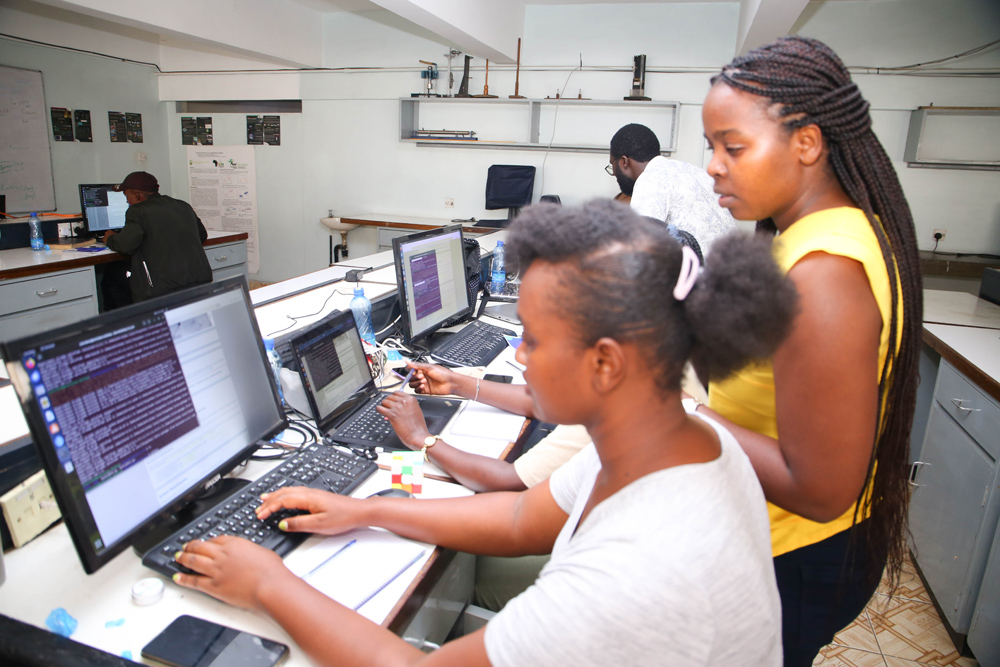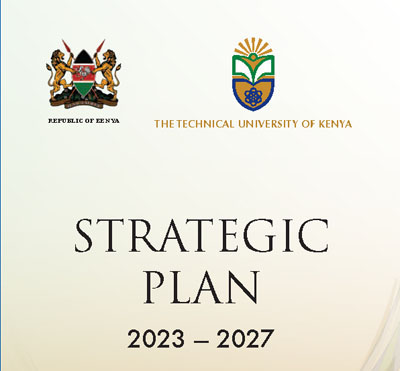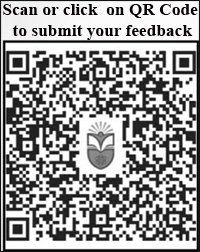Visiting Astrophysics expert, Dr. Mirriam Nyamai, has highlighted enormous opportunities students and researchers interested in space science can take up for career progression, in a quest for new knowledge and linking up with experts worldwide.
Dr. Mirriam Nyamai works at the South African Radio Astronomy Observatory as an Associate Operation Scientist and Telescope Operations and is currently in TU-K for a two-week training. She described space science as an intriguing field that is a growing frontier for scientists and scholars interested in discovering new knowledge useful even in the current quest for solutions.
“Technologies like Wi-Fi, Artificial Intelligence, fiber optic, medical-physics technology among several others stemmed from scientific discoveries derived from space science investigations,” Dr. Nyamai said.
The two-week training hosted by TU-K’s Department of Astronomy and Space Science is part of a capacity-building workshop in preparation for the launch of the Mega Square Kilometre Array (SKA) project. The training targets Master’s and Ph.D. students who will later travel to South Africa for further experience and networking.
The training session attracted researchers and students from other universities in Kenya, including the University of Nairobi, Meru University, and Multimedia University. Other trainers who conducted the training include Calvins Juma, Moses Langa, Geoffrey Ongalo, and Isaac Mutie.
TU-K hosts the Development in Africa with Radio Astronomy Project (DARA) in Kenya.
Prof. Paul Baki, who is the coordinator and principal investigator of the DARA Project in Kenya, emphasised the need for training in ‘the basics of radio astronomy’ and providing ‘hands-on experience’ to prepare students for the SKA project, which is set to be rolled out in South Africa and across eight African countries, including Kenya.
Initial works in Turkana are underway to set up a radio telescope to pool with others set up in countries including Botswana, Ghana, Madagascar, Mozambique, Mauritius, Namibia, and Zambia. It is part of South Africa’s network of radio telescopes called the African Very Long Baseline Interferometry Network (AVN).
The DARA project aims to develop high-tech skills using radio astronomy in Africa. Radio astronomy encompasses all of the science, technology, engineering, and mathematics (STEM) skills that underpin the emergence of a strong developed economy.
Prof. Baki added that TU-K has executed notable projects in space science, including participation in the Double Asteroid Redirection Test (DART) at the Turkana Basin Institute and the building of the TUKSat-1 nanosatellite.
“With the biggest radio telescope being hosted in Africa, there is a need to train scholars in Africa on basic data analysis and astronomy and prepare students to operate telescopes like the meerkat,” Dr. Nyamai said.
“This opportunity will also enable the students to connect, collaborate, learn proposal writing, and get assistance when working on their MSc from peers within the industry,” she added.
The SKA project is a win for the global south as it will enable the development of scientific analytic skills (data science), innovation, and technological advancements, thus opening up job opportunities in various fields. This will position Africa at the forefront of scientific innovation.



